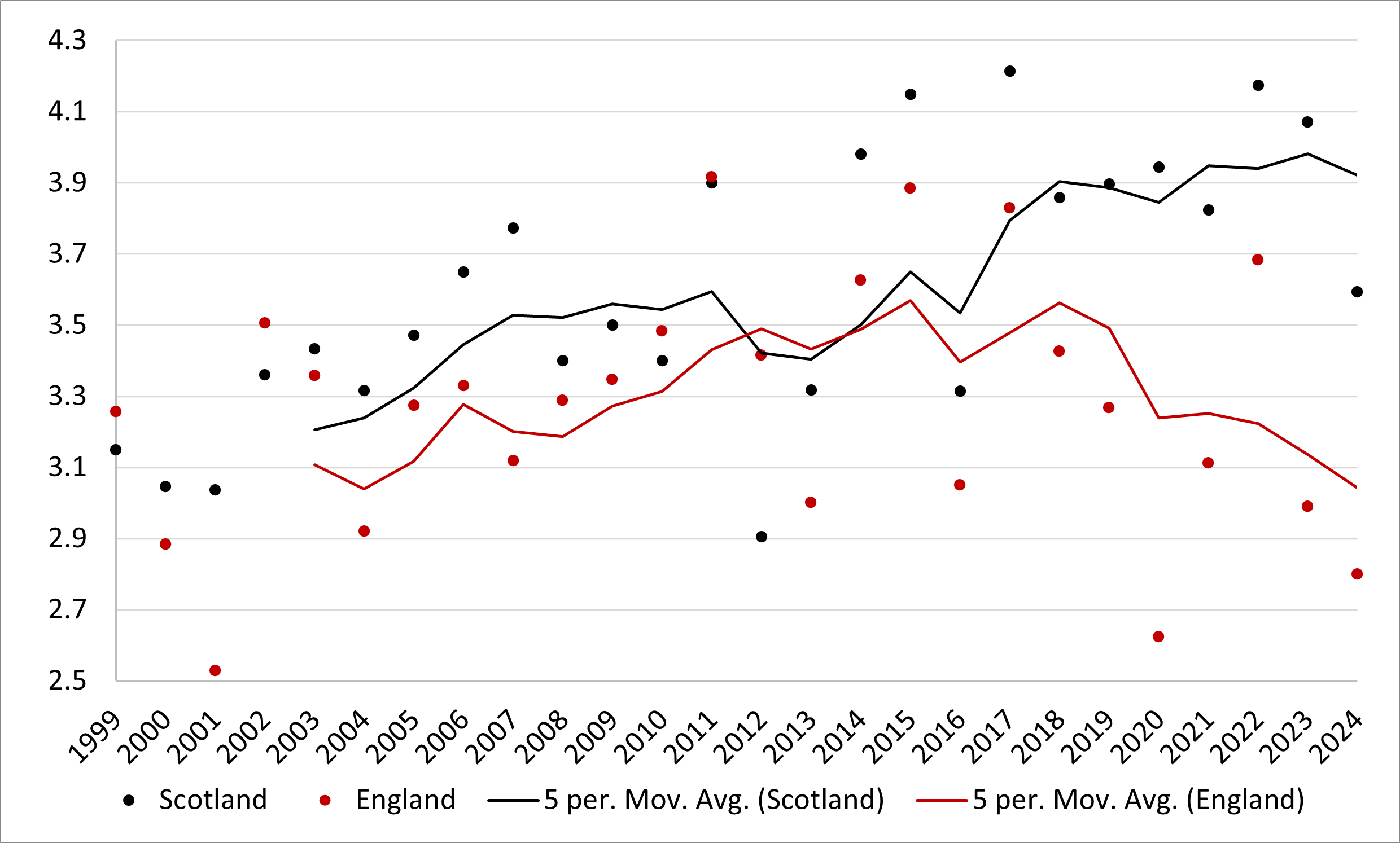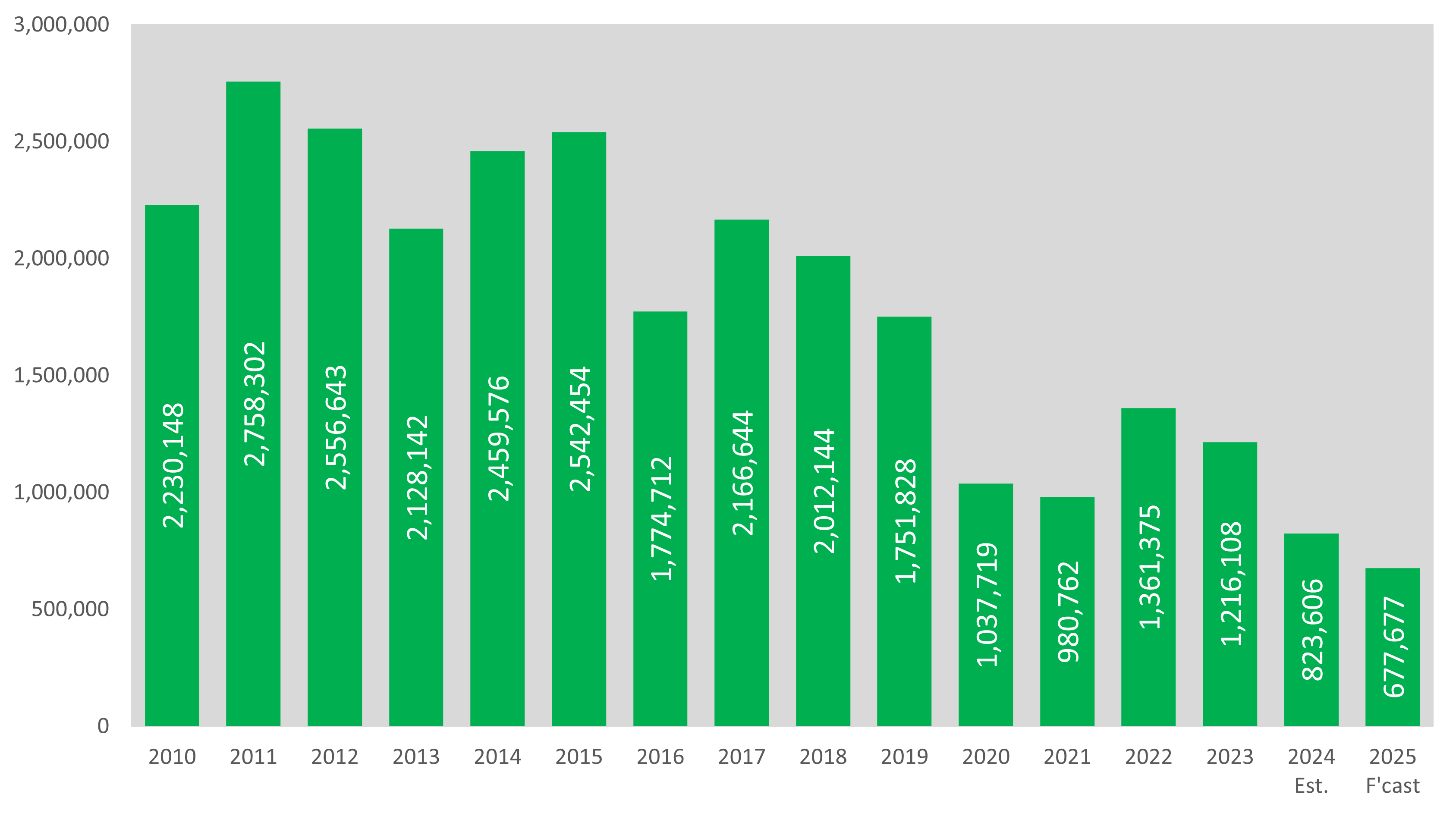
In the mid-2010s, the UK’s farming sector faced a seismic shift when neonicotinoid (Neonics) seed treatments were banned. Neonics had been integral to oilseed rape (OSR) cultivation, offering effective protection against pests like cabbage stem flea beetle. In the absence of this tool, and resistance to alternatives, average yields in England plummeted from over 3.5t/ha to around 3.0t/ha in just a decade. This sharp decline stands in stark contrast to Scotland, where flea beetle is not as significant an issue to date, and yields have continued to improve thanks in part to advancements in plant genetics.

The unintended consequences of the neonic ban have been profound. For English growers, the combination of lower yields and higher establishment risks has rendered OSR cultivation increasingly unprofitable. Many have chosen to abandon the crop altogether, exacerbated by pressure from the Sustainable Farming Incentive (SFI), which has encouraged alternative land uses and has taken good arable land out of production. Today, OSR plantings in the UK are at their lowest level since 1983.

This decline in domestic production has led to a significant supply-demand imbalance. The UK’s crushing capacity, close to 2 million tons annually, far exceeds the current domestic OSR output, which is insufficient to fill even the Liverpool crush facility, let alone Erith, Stratford, or feed processors. Despite falling domestic production, demand for OSR remains robust, necessitating a surge in imports. Shockingly, 64% of the OSR imported this year is projected to come from countries that still use neonics, including Ukraine (34%), Australia (23%), and Uruguay (7%).
The reliance on imports presents a troubling irony. By banning neonics, the UK has effectively offshored its OSR production to regions where these treatments remain standard practice. This shift undermines the principle of a level playing field for UK farmers and exacerbates environmental concerns. Shipping emissions associated with importing OSR from halfway around the world, on top of the continued use of neonics in those countries, raise serious questions about the net environmental benefits of the policy.
The industry driven #OSRReboot of OSR cultivation aims to address these challenges head-on. By championing sustainable practices and advocating for policies that level the playing field, this collaboration seeks to restore the profitability and viability of OSR production in the UK.
Without effective measures, the unintended consequences of the neonic ban will persist, jeopardising domestic agriculture while threatening food security, economic growth, and biodiversity.
